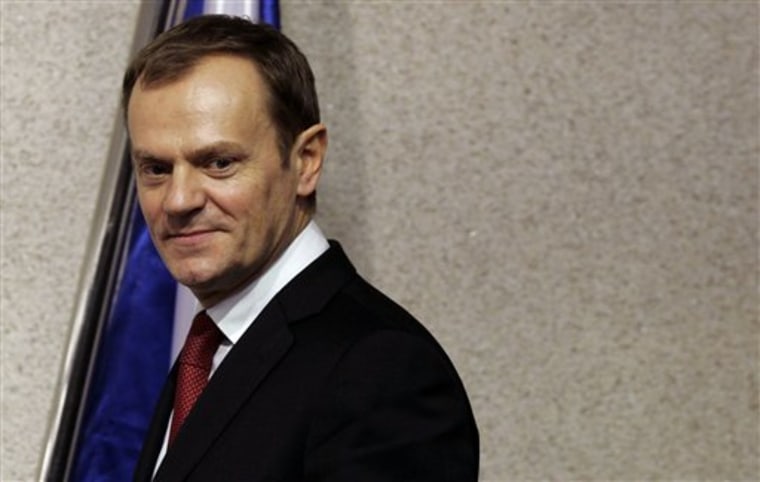Polish Prime Minister Donald Tusk said President Bush on Monday removed key stumbling blocks in negotiations to allow U.S. missile defense interceptors on Polish soil.
Negotiations had stalled over Poland's demand for help in upgrading its military in exchange for allowing the interceptors. U.S. negotiators wanted to deal with the Polish demands separately and leave promises vague.
But Tusk said Bush had agreed that the missile defense program and the U.S.-aided modernization of the Polish military would be considered all in "one package."
"The words of President Bush were very convincing," he told The Associated Press minutes after leaving the White House. "This is a politician, who is controversial for some but in my opinion is very trustworthy. I believe that is extremely important in the world of politics."
Bush, in a joint appearance with Tusk at the White House, said he had assured the prime minister that the United States would develop a concrete plan for helping Poland modernize its military "before my watch is over."
Thorny issue with Russia
The U.S. missile defense plans have become one of the thorniest issues in U.S.-Russian relations. Russia opposes the U.S. plan to build part of its global missile defense system so close to Russian borders, arguing that it would undermine the Russian deterrent. The Polish government argues that the security backing is necessary because Russia has threatened to target Poland with nuclear missiles if it should allow the interceptors.
Tusk said that Bush had assured him that the United States would continue to try to persuade Russia that the missile shield was not a threat. The United States says that it is aimed at countering a threat from countries such as Iran and North Korea.
The White House denied the suggestion that the military help is a reward for Polish agreement on the interceptors or that it is needed because of a Russian threat to Poland.
"It is certainly not a quid pro quo," White House press secretary Dana Perino said. "Who is suggesting that Russia is going to attack anybody?"
When told that it is Polish officials who have said this, Perino said that it was not part of the discussions Monday between Tusk and Bush.
'A lot of work to do'
Tusk said that the United States had backed down from an insistence that it would need six months to consider how it could help Poland upgrade its military. Tusk said that Secretary of State Condoleezza Rice told him Monday that the period could be reduced to three months.
He said — despite Perino's denial — that the two sides had agreed that the missile defense issue would not be decided without meeting the Polish demands.
"The Polish point of view has been accepted and I treat that as — maybe not a breakthrough because I don't want to use big words — but a very clear explanation of our mutual intentions. This will allow our negotiators to continue their work," he said. "No one will make haste on this. We want to negotiate a deal that will be good for Poland but also for the U.S. It does not mean it has to be immediately."
Following the meeting between the two leaders at the White House, Bush said the United States recognizes the need for Polish forces to be modernized, and "we're responding."
"There is a commitment to a system that respects Poland's sovereignty and that will ensure that the people of Poland will not be subjected to any undue security risks," Bush said. "This is the kind of issue that all kinds of rumors and worries can grow out of and we just want to assure people that it's necessary and at the same time there will be this modernization effort that will take place."
Neither leader talked specifics. Bush said "obviously there's a lot of work to do" and that experts are working through the details to make sure that "the people of Poland are comfortable with the idea."
The United States opened the negotiations last year with the government of previous Polish Prime Minister Jaroslaw Kaczynski, who strongly supported the U.S. proposal. Tusk's government has sought more in return.
Polish officials have said they are looking for help to acquire air defenses against short- to medium-range missiles. Negotiators have asked for Patriot 3 or THAAD missiles and have identified 17 areas of the Polish military that the United States could help modernize. Interceptors for the planned U.S. shield are for protection against long-range missiles.
